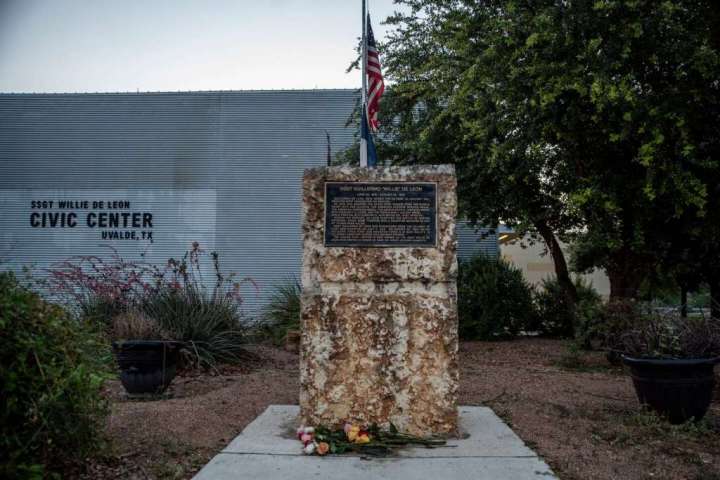On the surface, contemporary America seems very distant from the world of Greek tragedy or the Toltec capital of Tula in 950 A.D. But our societies have something in common. We all practice child sacrifice.
America practices child sacrifice. Uvalde is the latest offering.

The massacre brings the total number of children killed in school shootings since the 1999 Columbine attack to 185. That figure doesn’t account for all the other settings in which children have been the victims of mass gun violence. And it doesn’t include the 311,000 children who were injured in school shootings, witnessed their classmates and teachers being shot, or sought shelter in barricaded classrooms, bathrooms and closets.
Given the lack of action after these spasms of butchery, there is only one possible conclusion: We are willing to tolerate the murder of children. We accept events that will gravely wound the bodies and psyches of many others.
But in exchange for what? For what Sen. Ted Cruz (R-Tex.) has called “the fundamental, God-given right each and every one of us has to defend our lives, to defend our homes, to defend our children, to defend our family”? Must we allow the possibility that our children will be destroyed in order that they might, hypothetically, be saved?
At least in other stories and societies, the people who murdered children and the people who sanctioned those murders believed they were giving their children to the gods in return for something vital.
Excavations near Knossos have uncovered the remains of a sacrificed teenager, and historians of the period believe that Minoans may have practiced human sacrifice in response to natural catastrophes. Archaeologists believe that Toltec and Aztec children were sacrificed to the rain god Tlaloc to ensure the success of the harvest.
As for our contemporary bargain, the Greek tragedian Euripides came closest to capturing its ugliness. In his play “Iphigenia at Aulis,” the Greek forces assembled to return Helen from Troy find themselves becalmed by a lack of wind. A seer tells Agamemnon, the Greek war leader, that the only way to get the troops on their way is to sacrifice his daughter Iphigenia.
Agamemnon sends for Iphigenia under false pretenses — then balks at the enormity of what he’s been asked to do. But just when it seems he has recovered his moral sense, he changes his mind, because he does not want to appear weak to the troops he commands.
Agamemnon’s cowardice should be both ghastly and recognizable to anyone familiar with the contemporary offerings of “thoughts and prayers” instead of legislation, of sympathy but not of courage. Just as Agamemnon’s wife, Clytemnestra, is horrified by the prospect of “buying what we most detest with what we hold most dear,” so is every school shooting a sickening reminder of the choice American society makes over and over again.
Maybe there is one difference between us and these fictional Greeks. Clytemnestra describes children as “what we hold most dear.” But for all American society says about children being valuable — Food and Drug Administration chief Robert M. Califf has called babies “our dearest and most precious people”— we don’t act like it.
The way we choose political expediency over children’s lives in mass shootings may be the most dramatic and sickening kind of human sacrifice we make. But every day, in smaller yet still degrading ways, we let children bear our burdens and the costs of our weaknesses.
Our willingness to sacrifice children and their needs is evident in the infant formula shortage, and in the public and private failures to make sure all babies have access to safe, nutritious food. During the covid-19 pandemic, we sacrificed children’s educations and their social development; we may never be able to compensate them for these losses. And by putting the youngest children last in line for covid-19 vaccines, we have ensured that they will continue to make sacrifices long after many adults have gone about their new normal.
Before she consigned herself to the sacrificial altar, Iphigenia implored her father: “Do not destroy me before my time, for sweet it is to look upon the light.”
Agamemnon didn’t listen to his daughter. We still can.






